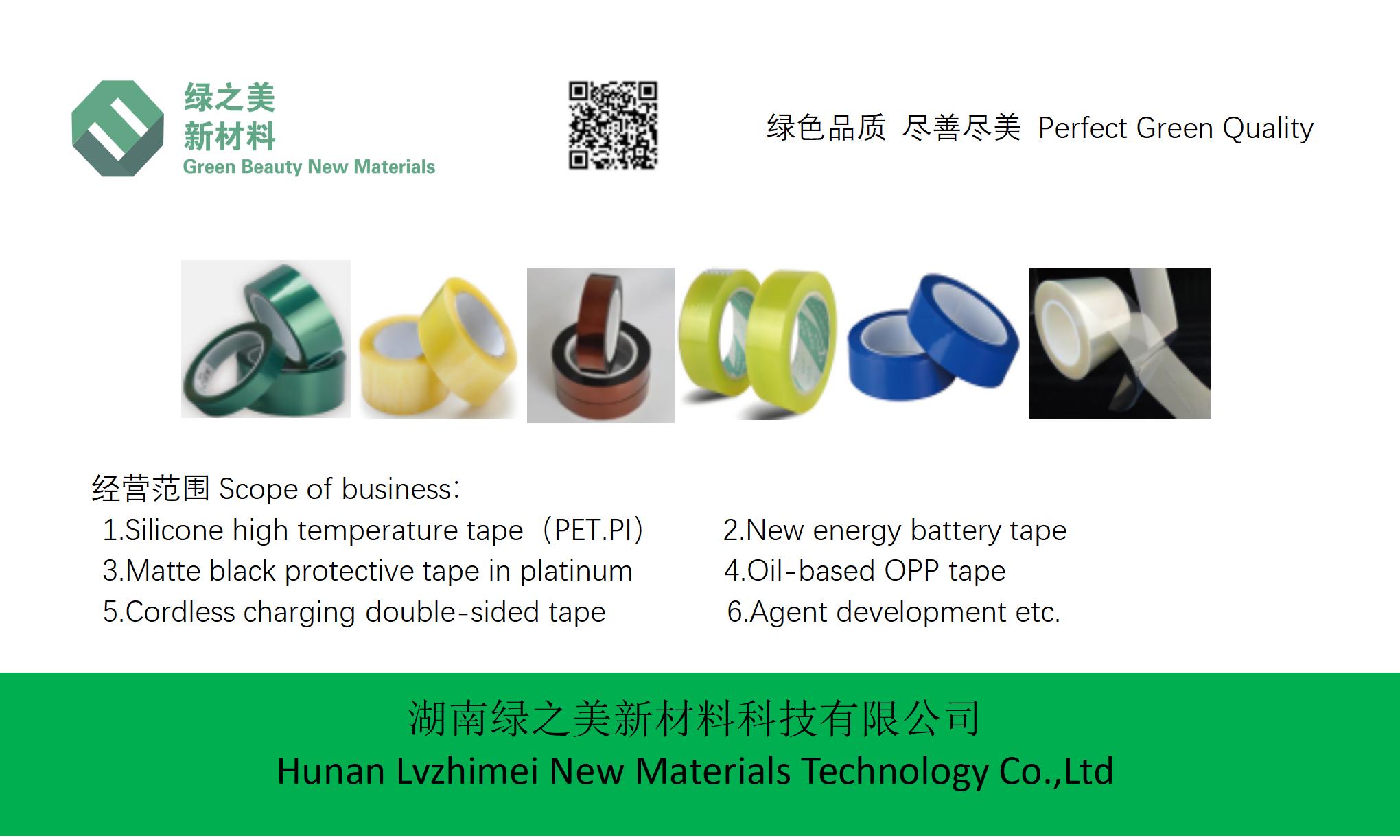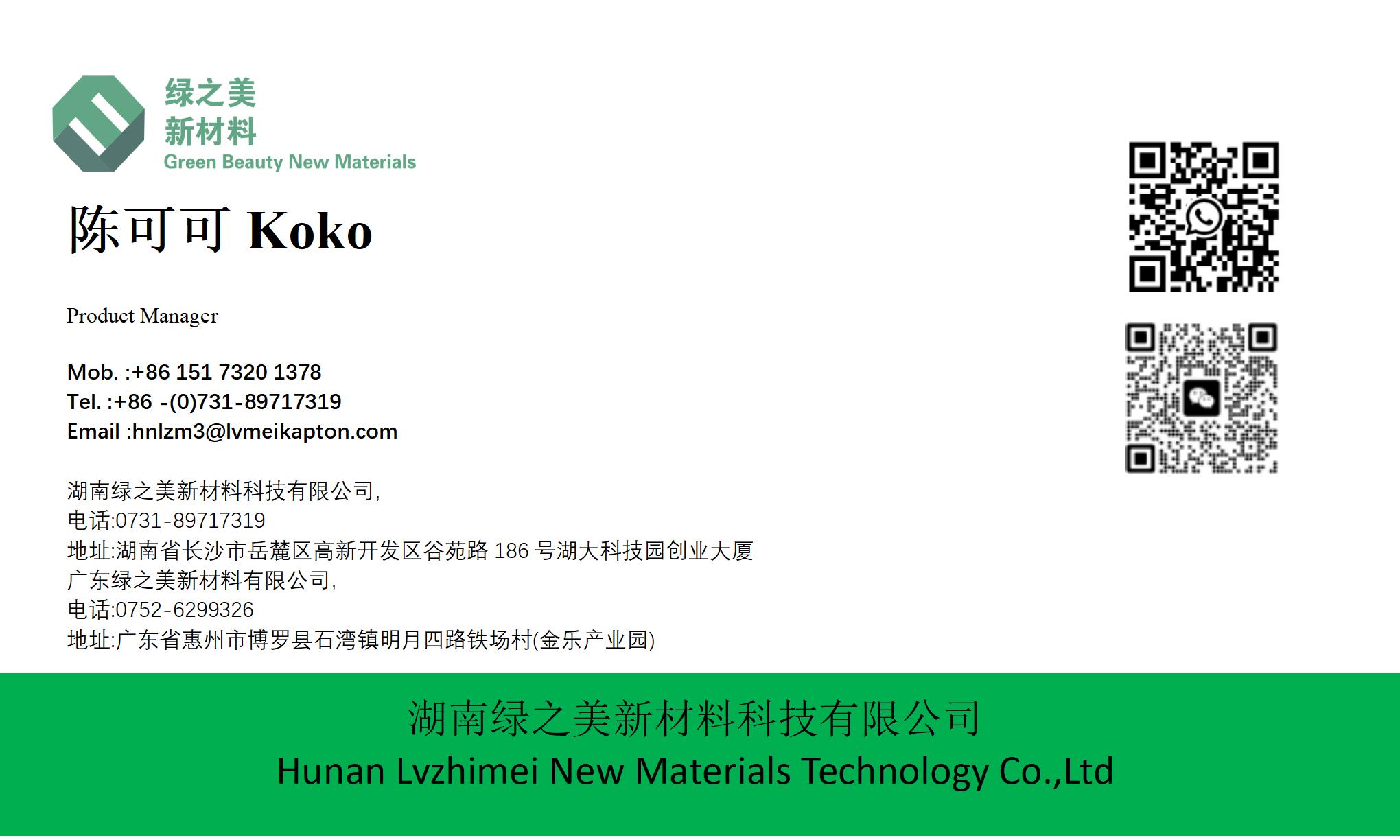hnlzm@lvmeikapton.com
+86 13787123465


Hunan Lvzhimei New Material Technology Co., Ltd.


NameDescriptionContent
Where Can You Buy Quality Gold Finger Electronics Polyimide Tape? |https://www.lvmeikapton.com/
Source:
|
Author:Koko Chan
|
Published time: 2025-05-23
|
2 Views
|
Share:
Gold Finger Electronics Polyimide Tape, also known as Kapton tape, is a critical component in electronics manufacturing and repair. This high-performance tape, featuring polyimide film coated with silicone adhesive, offers exceptional heat resistance, electrical insulation, and chemical stability, making it indispensable for applications like PCB protection, soldering masking, and 3D printing. For buyers seeking quality Gold Finger Electronics Polyimide Tape, understanding trusted suppliers, purchasing channels, and pricing dynamics is essential. This guide provides a comprehensive overview to help navigate the market effectively.
A Buyer’s Guide to Sourcing Authentic Gold Finger Electronics Polyimide Tape
Gold Finger Electronics Polyimide Tape, also known as Kapton tape, is a critical component in electronics manufacturing and repair. This high-performance tape, featuring polyimide film coated with silicone adhesive, offers exceptional heat resistance, electrical insulation, and chemical stability, making it indispensable for applications like PCB protection, soldering masking, and 3D printing. For buyers seeking quality Gold Finger Electronics Polyimide Tape, understanding trusted suppliers, purchasing channels, and pricing dynamics is essential. This guide provides a comprehensive overview to help navigate the market effectively.
1. Trusted Suppliers: Where to Find Reliable SourcesLocating reputable suppliers is the first step in sourcing authentic Gold Finger Electronics Polyimide Tape. Here are key sources to consider:
1.1 Manufacturing Companies with Global Reach
●
Shandong Chengrui Packaging Co., Ltd (China): A leading manufacturer specializing in polyimide tapes. Their offerings include high-temperature resistance variants suitable for soldering and electronic insulation. With ISO 9001 certification and a decade of export experience, Chengrui ensures consistent quality through in-house production lines and raw material inspections.
●
Huizhou Xinhuiyu Electronic Technology Co., Ltd (China): Known for customizing polyimide tapes with thicknesses ranging from 0.05mm to 0.15mm. Their Gold Finger tape features low-friction properties and meets EU RoHS standards. Xinhuiyu’s flexible manufacturing allows for tailored width and adhesive options, catering to niche applications.
1.2 International Trading Platforms
●
Alibaba International hosts a diverse range of suppliers, offering bulk orders directly from factories. Features like “Verified Supplier” badges and trade assurance programs mitigate risks. For instance, suppliers like “Asia Supplier Anti-Static Black OPP Grid ESD Tape” (Min. Order: 10 rolls, US$0.80-2.00) provide competitive pricing and technical data sheets.
●
Global platforms like Amazon Business offer smaller quantities for prototyping, with brands like “TechTape” selling pre-cut rolls for 3D printer use, ensuring convenience for hobbyists and startups.
1.3 Industry-Specific ExhibitionsTrade shows like NEPCON China (Shanghai) and Electronics Asia (Hong Kong) connect buyers with global manufacturers. Direct interactions allow for sample testing and long-term partnership discussions. For example, a 2024 NEPCON exhibitor showcased a Gold Finger tape with 260°C heat resistance, ideal for advanced semiconductor applications.
1.4 Specialized DistributorsRegional distributors like Electronics Direct USA source tapes from tier-1 Chinese factories, offering localized support and expedited shipping. Their inventory includes tape variants with PI film reinforced by fiberglass for enhanced mechanical strength, suitable for military-grade electronics.
2. Online vs. Offline Purchase: Pros and ConsThe choice between online and offline purchasing hinges on specific requirements:
Online Platforms (e-Commerce & B2B Marketplaces)Pros:
●
Global Access: Platforms like Alibaba, Made-in-China, and Thomasnet aggregate suppliers worldwide.
●
Price Transparency: Listings display unit costs (e.g., US$0.15-0.9 per piece for bulk orders) and MOQs.
●
Data Availability: Product specs (thickness, adhesive type) and certifications are readily accessible.
Cons:
●
Verification Challenges: Counterfeit products may exist. Buyers must check supplier credentials (factory audits, test reports).
●
Shipping Delays: International orders may face customs hold-ups.
Offline Channels (Local Distributors & Manufacturers)Pros:
●
Immediate Availability: Ideal for urgent orders. For example, regional distributors in Shenzhen stock tapes with next-day delivery.
●
Hands-on Testing: Direct sample inspections ensure compatibility with specific equipment (e.g., 3D printers).
●
Customization Negotiations: Face-to-face discussions with factories expedite complex requests (e.g., laser-cut tape shapes).
Cons:
●
Limited Options: Smaller distributors may carry fewer variants.
●
Higher Margins: Prices may be 20-30% above direct factory orders.
3. Pricing Factors: Understanding the Cost StructureGold Finger Electronics Polyimide Tape pricing varies significantly based on technical specifications and sourcing conditions. Key influencers include:
3.1 Material & Construction
●
Film Type: Pure polyimide (Kapton) vs. blended PI films. Premium tapes use DuPont-equivalent materials, costing US4−5perrollvs.US0.8-2.00 for standard grades.
●
Adhesive Coating: Silicone adhesive thickness and quality directly affect prices. High-adhesion variants for demanding applications (e.g., aerospace) command premium rates.
3.2 Technical Specifications
●
Thickness & Width: Thicker tapes (0.1mm+) and custom widths (beyond 25mm standard) incur higher manufacturing costs.
●
Temperature Range: Tapes rated for >300°C heat resistance (e.g., for reflow soldering) cost 2-3x more than 200°C variants.
3.3 Order Quantity (MOQ)
●
Small Orders (1-10 rolls): Unit prices range from US$0.50-1.20, suitable for R&D or hobby use.
●
Mid-Volume (100-1,000 rolls): Prices drop to US$0.15-0.9 per piece, ideal for SMEs.
●
Bulk Orders (>1,000 rolls): Negotiable discounts up to 30% are common, particularly from Chinese factories.
3.4 Customization & Branding
●
Logo Printing/ Die-Cutting: Additional costs range from US$0.10-0.50 per roll.
●
Branded Packaging: OEM services (e.g., custom box designs) add US$0.20-0.50 per unit.
3.5 Geopolitical & Logistics
●
Sourcing from China vs. USA/ Europe: Domestic Chinese prices are 40-60% lower due to raw material and labor advantages. However, import duties and longer shipping may offset savings.
●
Lead Times: Expedited air freight raises costs by 150-200% compared to sea shipping.
Table: Price Comparison by Specification
Specification | Price Range (US$) | MOQ |
Standard 0.05mm, 25mm | 0.20-0.50 | 10 rolls |
High-Temp 0.1mm, 50mm | 0.80-1.50 | 100 rolls |
Custom Die-Cut Shapes | 0.50-1.20 (per piece) | 500 rolls |
Premium DuPont-Kapton | 3.00-5.00 | 1 roll |
4. Verification & Quality ControlTo avoid substandard products, buyers should:
1.
Request Certifications: RoHS, UL, and REACH compliance are non-negotiable for electronics use.
2.
Sample Testing: Evaluate tape adhesion, heat resistance (e.g., exposing to 260°C for 30 mins), and electrical insulation.
3.
Check Supplier History: Review Alibaba’s “Trade Assured” scores or LinkedIn company profiles for client testimonials.
4.
Inquire About Raw Materials: Ethical suppliers disclose PI film sources (e.g., Japan’s Toray vs. domestic alternatives).
ConclusionSourcing quality Gold Finger Electronics Polyimide Tape requires balancing cost, technical requirements, and supplier credibility. By prioritizing trusted manufacturers, leveraging online platforms for cost efficiency, and rigorously verifying product quality, buyers can ensure they obtain tapes that meet stringent industry standards. As electronics evolve, continuous evaluation of new suppliers and emerging technologies will remain crucial to maintaining a competitive edge in production and repair processes.



Hunan Lvzhimei New Material Technology Co., Ltd.
Quick Links
Product Categories
© 2024 Hunan Lvzhimei New Material Technology Co., Ltd.All Rights Reserved. Designed by Erge
0731 - 89717319
hnlzm@lvmeikapton.com
+86 13787123465
Room 502, Chuangye Building, No186, Guyuan Road, High-Tech District, Changsha, Hunan, China
CONTACT



